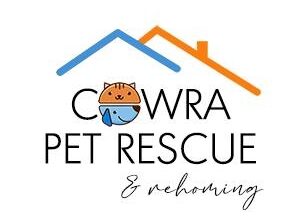Foster
Foster Care
Caring for foster pets is a wonderful way to bring joy and companionship to your family and home. A pet foster carer provides a temporary home for rescued animals while their forever family or home is found. This may be for a single weekend, a week or several months. The role of a foster carer can range from providing a loving and safe environment, transitioning an animal from Pound to a new home and sometimes assisting with medical care and training.
Becoming a foster carer is a rewarding experience and one where you can help to make a difference in an animal welfare organisation in your local community. Many shelters and charity organisations are restricted by kennel space and human hands. By offering to take in foster pets, you can help save a life and make rescue transitions so much easier.
When might an animal need Foster Care?
- Puppies and kittens who are not old enough to be rehomed
- Pregnant animals, cats with kittens and dogs with puppies, needing a stable calm environment in which to raise their young
- Animals recovering from surgery or short-term, treatable illnesses
- Animals suffering from stress and anxiety
- Animals in protective custody, or those from domestic violence situations
- Cats or dogs who are not coping in the Pound, or at risk of euthanasia
- Dogs with mild behavioural issues requiring behavioural enrichment
- The rental crisis sometimes means pets have to be surrendered
Is Animal Foster Care Right for You?
It’s important to know whether you are personally and situationally ready for a foster animal. Rescue cats and dogs, the most common type of foster pet, will need to be treated with gentle, constant attention. You will need a home where pets are permitted, and a household who can handle pets that may be ill, injured or may experience behavioural problems.
What do you need as a Foster Carer with CRRP?
A safe and secure, home environment that can provide love, attention and regular handling. A willingness to learn new things and be hands-on. Own transport is helpful, however we do provide where needed. The application form will help you investigate further if you are fully available to be a Foster Carer. As always, contact us for advice or a visit.
Cats must be kept indoors, or only allowed out into a secure outdoor enclosure. Some small dogs may also be mostly indoor dogs, other than exercise or toilet. Most dogs will require outdoor space for a larger part of the day, whilst also learning how to behave when inside.
Foster Care can be emotionally draining at time. Animals can get sick, need special medical attention, have stressful behaviour, and even pass away or have to be put to sleep with the Vet. You do need to consider this may happen, even though it’s rare. We are here to support you through it all.


